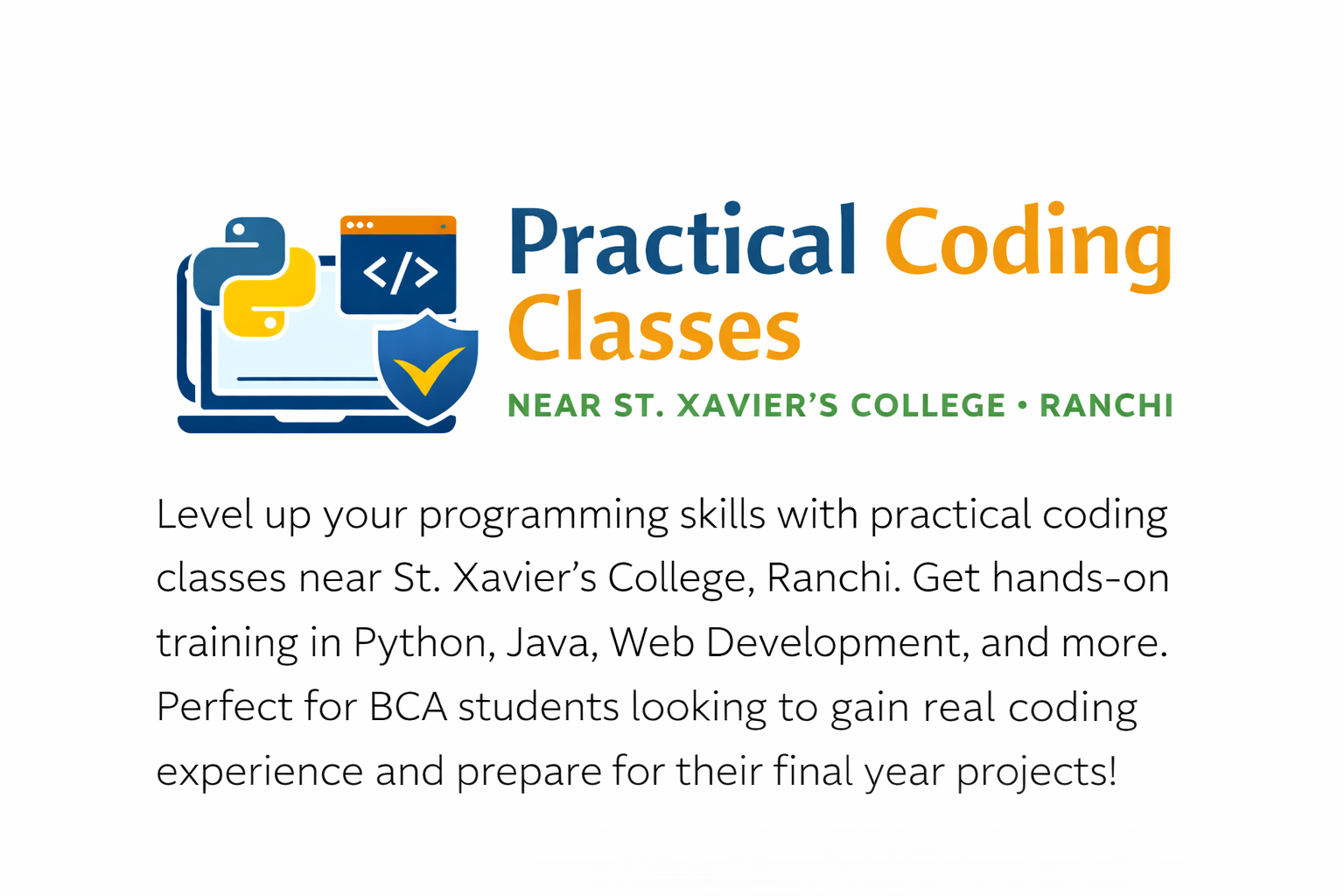Understanding BCA Specializations
Bachelor of Computer Applications (BCA) is an esteemed undergraduate degree that focuses on equipping students with the foundational knowledge and skills necessary for a successful career in the information technology (IT) sector. As the IT landscape evolves rapidly, students pursuing a BCA can choose from various specializations that align with their career aspirations and industry demands. Each specialization offers unique skills and job opportunities while catering to specific areas within the tech domain.
One prominent specialization is Software Development, where students learn programming languages, software engineering principles, and methodologies necessary for creating efficient and user-friendly software applications. It prepares graduates for roles such as software developers, application programmers, and project managers, which are in high demand in today’s technology-driven world.
Networking is another crucial BCA specialization. This field focuses on network design, implementation, and management, helping students understand how interconnected systems operate. Graduates in networking can take on positions such as network administrators, system analysts, and IT consultants, ensuring that organizations maintain robust and secure communication systems.
More
Data Science has emerged as a leading specialization due to the growing importance of big data analytics in business decision-making. BCA students specializing in this field gain skills in statistical analysis, data mining, and machine learning, which enable them to extract valuable insights from large data sets. Career opportunities for these graduates include data analysts, data scientists, and business intelligence professionals.
Lastly, Cybersecurity is a specialization of increasing relevance given the rising incidence of cyber threats. This area equips students with knowledge related to securing networks, protecting sensitive information, and implementing security protocols. Graduates can pursue careers as cybersecurity analysts, ethical hackers, or information security officers, playing a vital role in defending organizations against potential online vulnerabilities.
In conclusion, understanding the various BCA specializations facilitates informed career decisions for students. By exploring areas such as Software Development, Networking, Data Science, and Cybersecurity, prospective graduates can align their skills with the needs of the ever-evolving IT landscape.
Assessing Personal Interests and Strengths
When it comes to selecting a Bachelor of Computer Applications (BCA) specialization, self-assessment plays a pivotal role in aligning one’s skills and aspirations with the right career path. A thorough evaluation of personal interests and strengths can significantly influence decision-making and ultimately lead to greater satisfaction and success in the chosen field. To this end, students are encouraged to utilize various tools and techniques designed to facilitate introspection and self-discovery.
One effective method for self-assessment is the use of personality and interest inventories, such as the Myers-Briggs Type Indicator (MBTI) or the Strong Interest Inventory. These assessments help individuals understand their personality traits, work styles, and interests, providing a clearer picture of which BCA specializations might suit them best. Additionally, reflecting on past academic performance in subjects related to programming, networking, or database management can offer insight into personal strengths or preferences. Engaging in these evaluations empowers students to make evidence-based decisions about their futures.
Moreover, discussing aspirations with mentors, educators, or industry professionals can further refine one’s understanding of potential career paths. Networking and seeking advice from those already working in various fields of technology can reveal practical insights regarding the demands and rewards associated with different BCA specializations. Students should also consider their long-term career goals, weighing factors such as job stability, growth opportunities, and potential earnings.
Ultimately, aligning personal strengths with a chosen BCA specialization can lead to enhanced motivation and engagement in one’s studies. The intersection of personal interests, skills, and prospective career opportunities will provide a more well-rounded approach to specialization selection, enabling students to embark on a fulfilling and successful professional journey in the ever-evolving technological landscape.

Researching Career Opportunities and Trends
In the contemporary job market, selecting the appropriate Bachelor of Computer Applications (BCA) specialization requires thorough research into career opportunities and industry trends. Given the rapidly evolving technological landscape, it is vital for students and professionals alike to stay updated on which specializations are currently in demand and what future prospects may look like. Understanding these dynamics allows aspiring graduates to position themselves strategically within the workforce.
One fundamental resource for this research is online job portals such as LinkedIn, Indeed, and Glassdoor. These platforms provide valuable insights into the types of roles available in various BCA specializations, including software development, data analytics, and cybersecurity. Additionally, examining job descriptions can reveal the required skills and qualifications, enabling candidates to tailor their educational paths accordingly. Furthermore, exploring industry reports and labor market analyses from organizations like the Bureau of Labor Statistics can offer a broader perspective on employment trends and expected job growth in specific fields.
Another effective strategy is to engage with industry professionals and alumni who have experience in particular domains. Networking through platforms like professional associations or attending industry conferences can provide firsthand insights into the realities of different career paths. Moreover, seeking mentorship can lead to a more informed choice regarding a chosen specialization.
Salary trends are also an essential consideration when researching BCA specializations. Resources such as PayScale and Glassdoor can provide average salary data tailored to specific roles and skill sets, helping individuals understand the financial implications of their career choices. Additionally, considering future job prospects and growth opportunities is crucial as various specializations may witness fluctuations based on emerging technologies and market needs. By leveraging these research strategies, individuals can make well-informed decisions that align with the demands of the ever-changing workforce.
Making an Informed Decision
Choosing the right specialization in a Bachelor of Computer Applications (BCA) program is a pivotal step in shaping your future career. To arrive at a well-informed decision, it is essential to synthesize the information gathered from your research and introspection. Begin by engaging in thorough discussions with mentors or educators within the academic institution. Their experience and insights can provide clarity on the practical implications of each specialization, guiding you toward an informed choice that aligns with your interests and career ambitions.
Moreover, seeking guidance from industry professionals can significantly enhance your understanding of the current job market and trends. Networking through seminars, webinars, or even social media platforms, such as LinkedIn, can connect you with experts who have walked the path you aspire to take. Their firsthand accounts of daily responsibilities, challenges, and advancements within various specializations will offer invaluable perspectives that academic materials may not fully encapsulate.
Another crucial aspect to consider is any internship experiences or hands-on projects related to the BCA specializations you are contemplating. Real-world application of skills within the context of a particular field can provide insights into what working in that domain truly entails. This not only solidifies your understanding but also can aid in determining whether you possess the requisite skills and enthusiasm for that specialization.
As you deliberate your options, it is vital to remain adaptable, as the tech industry is dynamic and ever-evolving. Technology trends fluctuate, and new opportunities emerge; hence, the most suitable specialization may change over time. Taking action based on informed choices is essential, but so is the readiness to pivot should your interests or the industry landscape shift. Remember, the goal is to enhance your knowledge and skill set while aligning with your aspirations, leading to a fulfilling career path.









